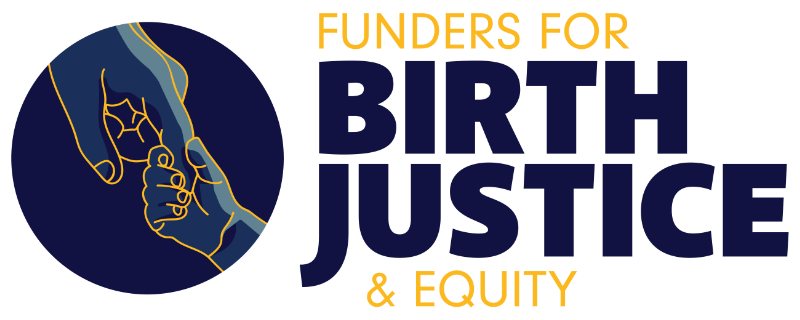After ten years, Midwifery Funders Group has changed its name to Funders for Birth Justice and Equity.
Why now?
First, some history. In 2007, one anonymous individual donor set out to support the midwifery model of care through the Transforming Birth Fund. This donor asked a question: Why is the midwifery model of care not the norm in the U.S.? If the World Health Organization says that 85% to 90% of all births are low risk, then why are 89% of births in the United States attended to by a surgeon?
This upside-down approach to maternity care is not doing us any favors. The U.S. is 10th among high resource nations in maternal mortality, infant mortality, and Cesarean rate. Compared to white birthing people, Black birthing people are more than three times and Indigenous birthing people more than twice as likely than white birthing people to experience pregnancy related death.
All of this at a cost of $111 billion per year.
What got us to this state of high cost, poorer outcomes, and gross disparities in our maternity care system?
That’s a big question, and one that the Transforming Birth Fund spent 12 years and $7 million of funding working to answer. Along the way it catalyzed many projects, leaders, and organizations, one of which was the Midwifery Funders Group.
Funders for Birth Justice and Equity was born out of the Midwifery Funders Group, a learning network of funders interested in the midwifery model of birth as a solution to the poor outcomes and high cost of the US maternity care system. This group has been meeting regularly, both in-person and virtually, since 2012, sharing knowledge of the field, successes, and projects funded.
Today, thanks to the work of BIPOC- and Indigenous-led community-based organizations, excellent in-depth reporting, and powerful academic research, the inequities in birth outcomes is a new focus of many funders and donors.
Can this funder spotlight on the problem achieve lasting change? How must our maternity system evolve to improve outcomes and experiences while lowering costs? And what are the levers to do so?
The good news is that there are many community-based organizations leading the way to the answers. They have taken it upon themselves to craft solutions, sometimes within the system and sometimes despite the system. Funders and donors can learn from their hard-won accomplishments.
Funders for Birth Justice and Equity made the name change now to better reflect our values and our vision: “The U.S. birthing care system is transformed and just, grounded in community-based solutions, and has ended inequities in birth outcomes. Just as the midwifery model of care is person centered, our philanthropy has become community centered.”
We want to learn from and lift up those activists, advocates, and practitioners leading the way to a just and transformed maternity care system. We will do so by serving as the go-to place for any funder to find the education, framework for change, resources, peer support, and collective action opportunities needed to fund systemic and transformative change. Join us by connecting with Strategic Advisor Betsy McNamara at bmcnamara@fullcirclenh.com and looking through our website for resources and events.
Written by Betsy McNamara


0 Comments